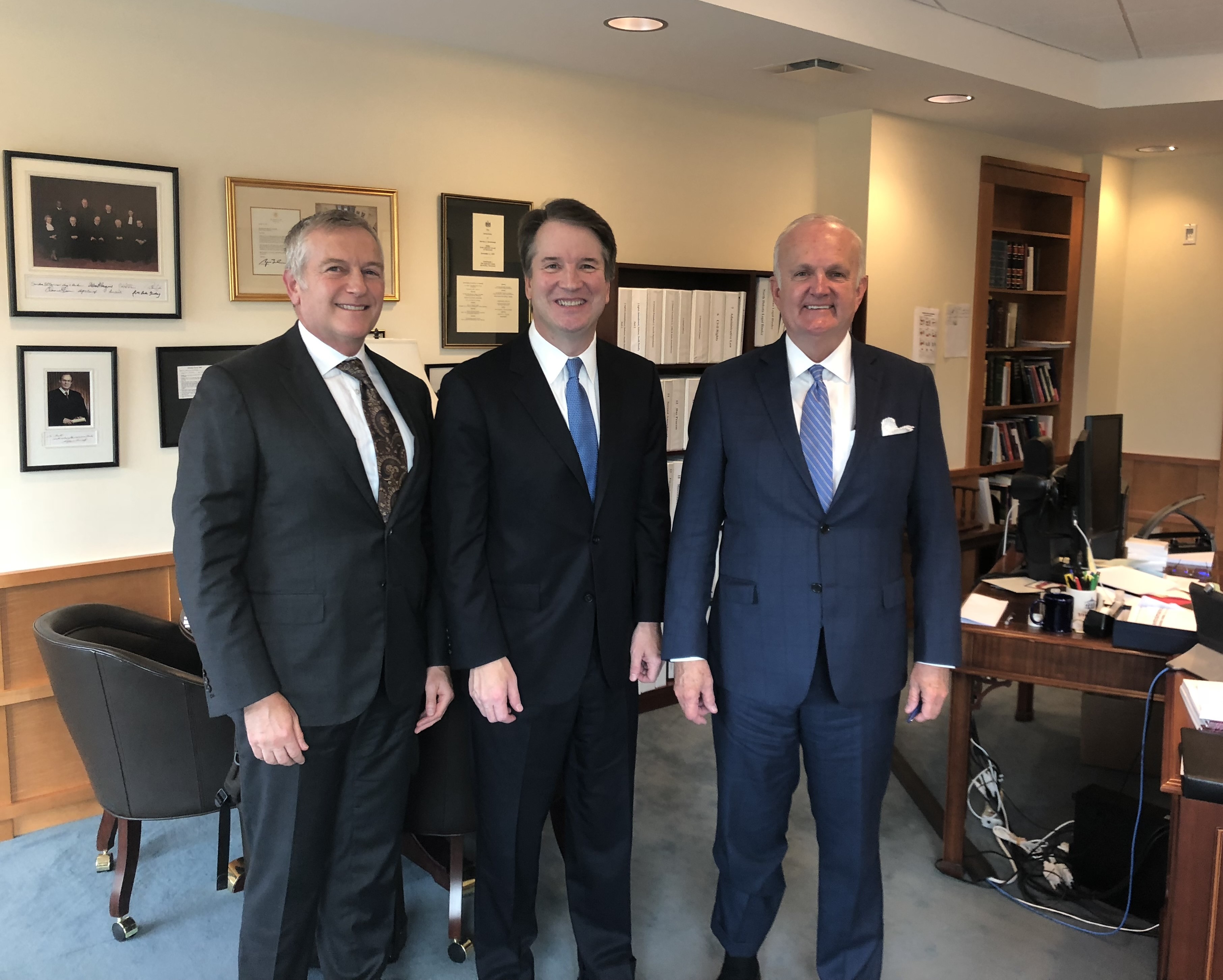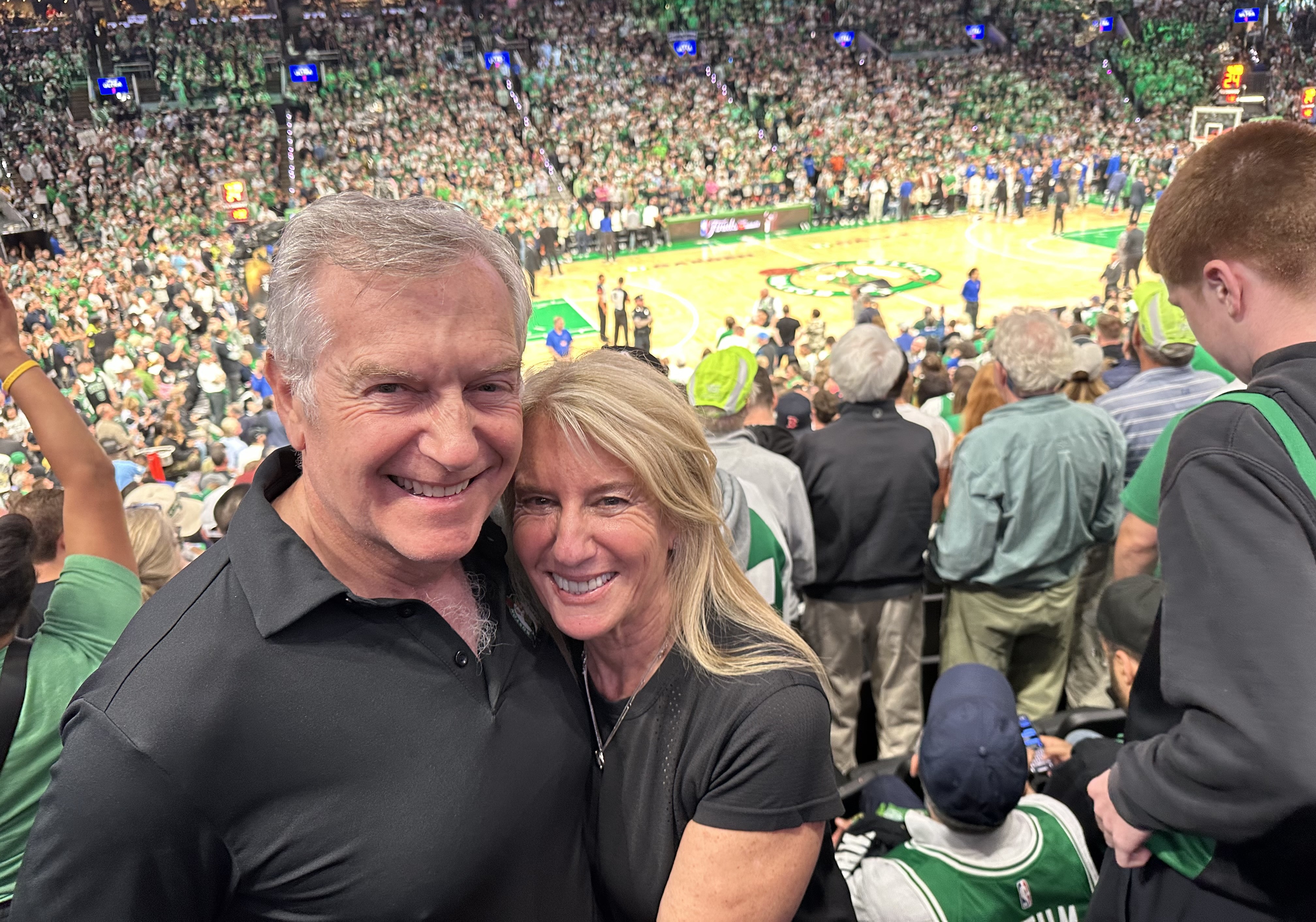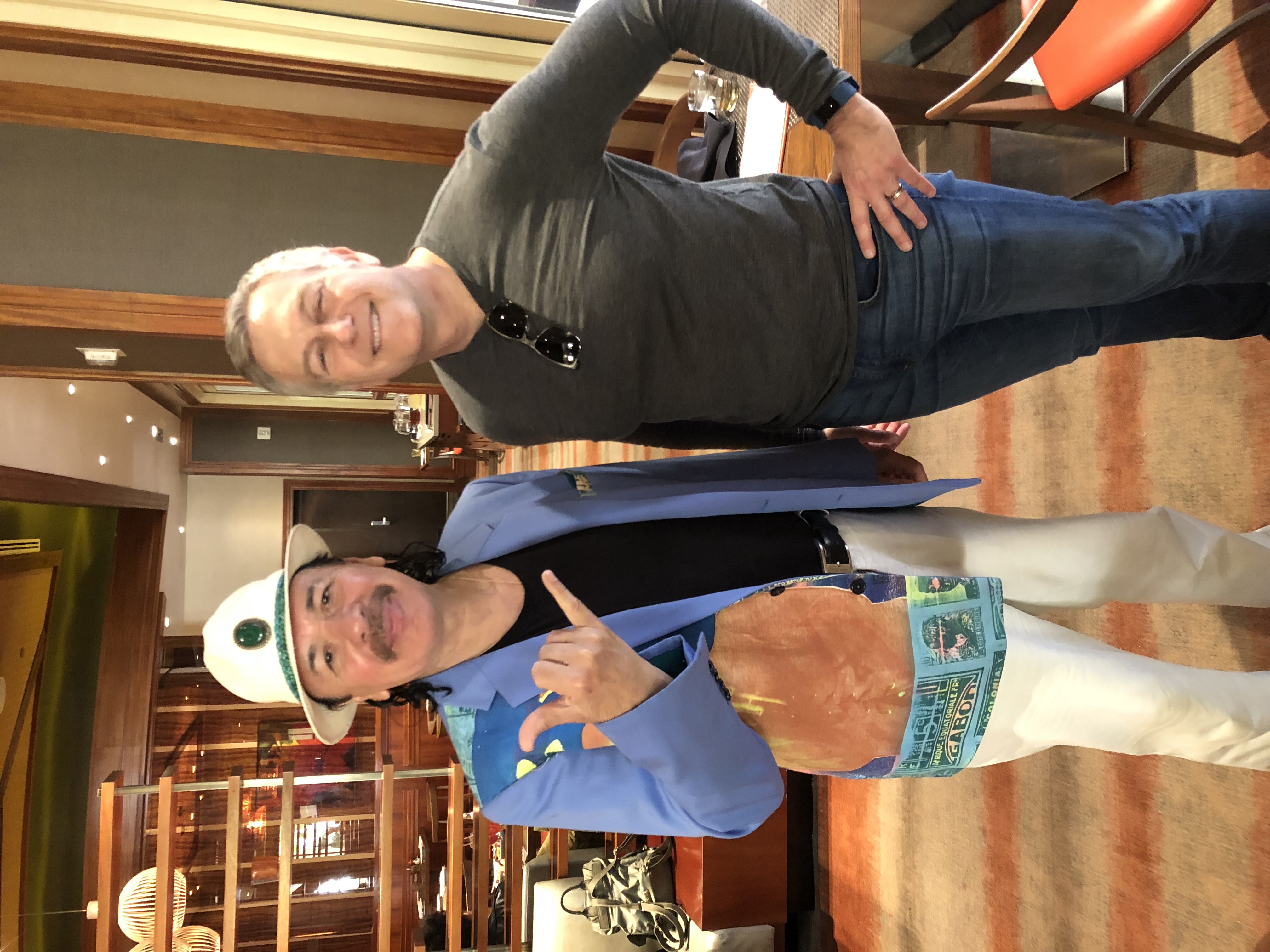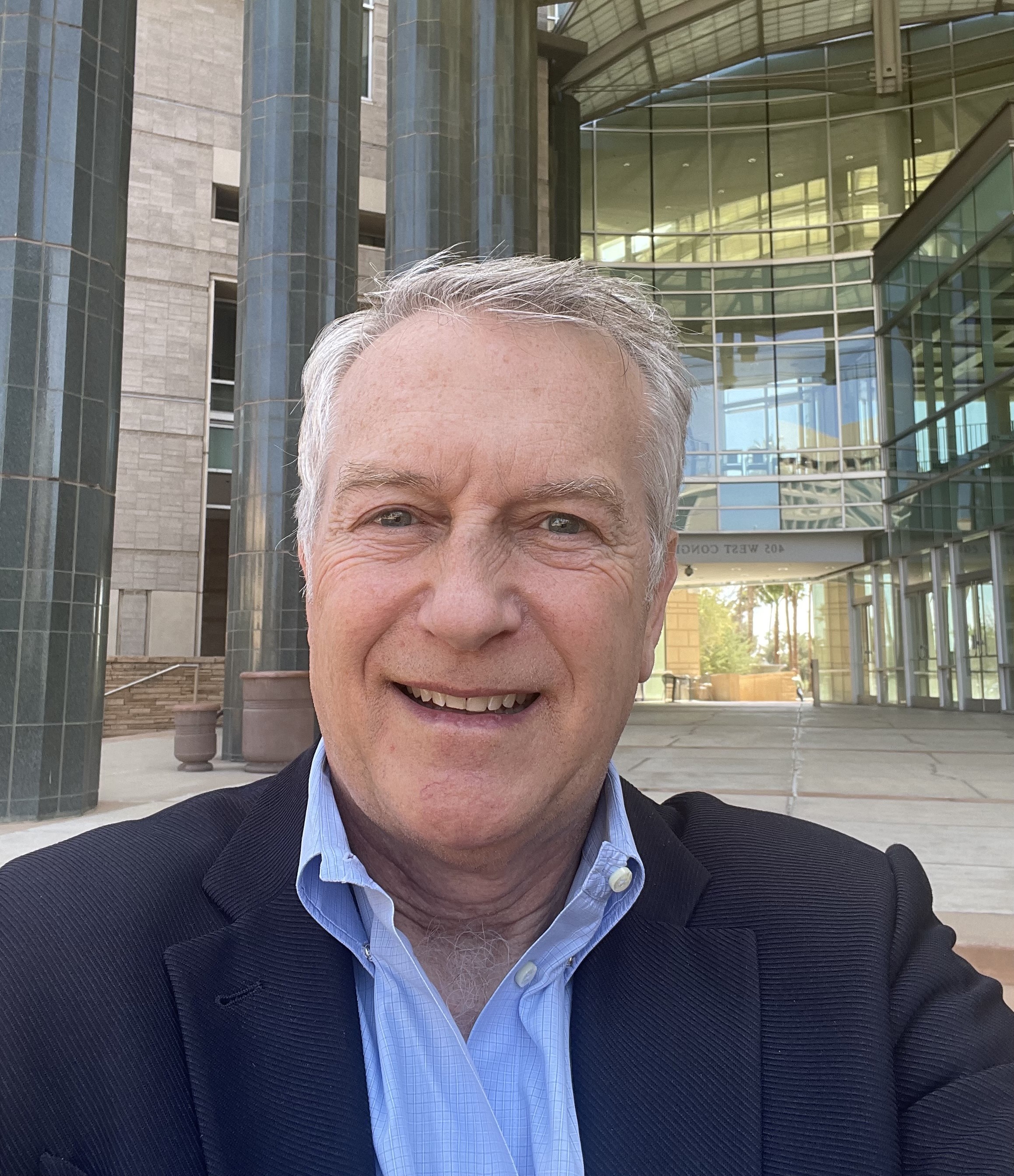Early exposure to some legal legends inspired Maine lawyer to become the best he could be
Articles
Attorney Spotlight
View more from News & Articles or Primerus Weekly
By Brian Cox
It can sometimes be odd what memories a person recalls from pivotal life moments.
Attorney Peter Bennett remembers a ride in a convertible on a Saturday morning in Maine with bright blue sky and the fresh Maine air.
In that moment, he knew he was destined to return to his home state.
He had returned to Maine to take the bar with the idea that he might someday return from practicing in Texas to join his father’s law firm, which was well established and highly respected. Herbert H. Bennett was a widely known and nationally prominent trial lawyer whose practice focused on representing management on issues of labor and employment law. He was founder of the Maine Trial Lawyers Association and was active in multiple national bar associations his entire career.
“I think the fact that my father was a lawyer and that I was exposed to the practice of law and a lot of bar association affairs is what drew me to choose law school,” reflects Bennett. “In the course of getting dragged around and going to events with him, I got to meet some pretty interesting characters and people who had made their mark.”
Many of his dad’s prominent friends served as mentors and role models as well. One was Richard Jacobson, a former journalist for The Boston Herald who became the executive director of the Association of Trial Lawyers of America (ATLA). Jacobson was the editor of “Trial Magazine” and wrote the definitive book on the history of the ATLA.

Bennett remembers once having dinner with Dr. V.K. Wellington Koo, a Chinese diplomat and statesman who served as ambassador to France, Great Britain, and the United States. He was a delegate to the Paris Peace Conference after World War I and participated in founding the League of Nations and the United Nations. Toward the end of his career, he sat as a judge on the International Court of Justice in The Hague.
Exposure to such a high level of achievement made a lasting impression on young Bennett, who decided early on to obtain a law degree, though what he would do with it was not immediately clear. He also had ambitions in the field of investment banking.
After attending Phillips Academy in Massachusetts, Bennett joined a large coterie of his classmates in going to Harvard, where he studied economics.
“The best part of the experience at Harvard was the friendships I made and the people I know,” he says, remarking on the opportunity to have a contact book of accomplished friends who have extraordinary careers.
Bennett followed Harvard with Boston University Law School, where he graduated first in his class while also earning an MBA from the business school. He was still uncertain which career path he wanted to take.
That changed unexpectedly his 3L year when he secured an interview with Fulbright & Jaworski (now Norton Rose Fulbright), an international law firm in Houston that was founded in 1919 and was one of the country’s largest firms, servicing global corporations and financial institutions. Bennett took the interview with no real intention of joining the firm, but there was something about the 20-minute exchange that was different from the other interviews he’d had. He was impressed by the caliber of its attorneys.
One of the firm’s founding partners, Leon Jaworski, had served as a war crimes prosecutor in Germany in the wake of World War II and once represented Lyndon B. Johnson during a Senate campaign. He’d also been appointed to serve as the Watergate special prosecutor following the firing of Archibald Cox.

The firm invited Bennett to dinner that night and the following week offered him a position with the assurance that he would get into court almost immediately. They were in need of attorneys who were interested in employment law and willing to try cases.
It was an opportunity Bennett couldn’t pass up.
“It was literally trial by fire. Two months after I joined the firm, I was handed a file and told to go take depositions, which I had never done before,” recalls Bennett with a dry laugh.
Though reserved and fairly shy by nature, Bennett embraced the demands and drama of the courtroom.
“When you try a case, you become an actor of sorts and you have to take on a personality that your client wants and needs,” he says. “Being prepared for anything in order to react and navigate the case gets my adrenaline flowing.”
His first trial was in Waco, Texas, and he says, “I think my knees were knocking and making so much noise it was probably hard to hear me.”
For the next three years, Bennett regularly worked seven days a week. The firm was an early proponent of a national billable hour requirement, which at the time was set around 1,750 hours. At the end of his first year, one of the six partners Bennett worked for was critical of him for falling short of the requirement by 20 hours, despite his having written numerous non-billable articles and having made dozens of presentations to organizations and associations. The experience has stayed with Bennett ever since, which is why to this day The Bennett Law Firm, P.A. does not operate under a billable hour requirement.
“We try to treat people like they’re professionals,” he says. “I believe that lawyers understand what their commitment is to their law practice and to their clients and know what they have to do and when they have to do it. I’ve tended to incentivize hard work and dedication through compensation opportunity as opposed to working requirements.”
In early 1988, Bennett was ready to leave Houston. He considered his options, including two offers from AmLaw 10 firms in other states, but he ultimately elected to return to Portland, Maine, where he grew up, and join his father’s firm.
“I decided if I’m going to work hard, I may as well work for myself,” he says.
Though he and his father were two strong personalities and did not always agree, Bennett recognized and respected that his father “had forgotten more than I knew at that point.”
Unfortunately, within a year of Bennett moving back home and joining the firm, his father became sick and was eventually diagnosed with pancreatic cancer. Herb Bennett lived another two years, working at the firm he founded up until the week he died.
“That was him,” says Bennett, who at the age of 32, suddenly found himself heading up the firm.
In response to the unexpected responsibility, Bennett did what he had always done: doubled down and worked harder to ensure the firm’s continued reputation for quality and service.

“In the type of law practice that we have, the two keys to success are doing good work and having good relationships with your clients,” he says. “Our two stocks in trade are client service and quality of work. We’re not the people you’re looking to hire if you’re looking to cut corners. Our clients hire us because they want the best outcome possible.”
Bennett’s practice now stretches from Maine to Pennsylvania with an active multi-state litigation docket that includes both individual and class/collective actions. He is widely recognized as a national expert on labor and employment law.
Like his father, his contributions to the legal profession have been extensive, including service as chair of the Tort Trial and Insurance Practice Section of the American Bar Association (ABA); chair of the ABA Standing Committee on Judicial Independence; Maine State Delegate to the ABA House of Delegates; and a member of the ABA Standing Committee on the Federal Judiciary. He received the Silver Shingle Award for Service to the Profession from Boston University School of Law. In 2019, he was elected chair of the Board of Trustees of the National Judicial College.
“I viewed the opportunities to engage in bar service and continuing education, both for lawyers and nonlawyers, as an opportunity to contribute to the profession and to gain credibility,” he says. “So, when those opportunities presented themselves, I was quick to say yes.”
Almost 20 years ago, after recognizing a need for a leadership development program at the national level, Bennett was instrumental in identifying the void that resulted in the creation of the ABA’s Leadership Academy, which was designed to identify young lawyers from diverse backgrounds and offer them training to help advance their careers within their firms, their communities, and within the ABA.
“I knew that if that program was successful, I had to buy into the concept that we were opening doors for younger people, and if we were doing that, it ultimately meant we had to take a back seat and make opportunities for younger people.”
In that light, Bennett is finishing up his second three-year term on the ABA’s Standing Committee on the Federal Judiciary, which evaluates the professional qualifications of all nominees to the Supreme Court of the United States, circuit courts of appeals, district courts (including territorial district courts) and the Court of International Trade. The committee’s goal is to support and encourage the selection of the best-qualified persons for the federal judiciary. It restricts its evaluation to issues bearing on professional qualifications and does not consider a nominee's philosophy or ideology.
Bennett was first asked to sit on the committee after his work to help establish the Leadership Academy. Over his two terms, he has led more than 60 investigations into judicial nominees, which involves scores of confidential interviews with people who know them and hours of reading their legal writings.
“You interview not only colleagues they work with, but adversaries from cases. You find people in the community who know them. You talk to judges,” says Bennett. “You really get to know somebody intimately if you’re assigned to be the lead investigator on a nomination.”
Committee members commit to spending between 500 to 1,000 hours a year to investigate a nominee, assess their intellect, their integrity, and their temperament in order to get to the core of who a nominee really is.
In October, Bennett is scheduled to speak at the investiture of a new federal district court judge in Miami. He has often spoken at the investitures for nominees whose investigation he conducted.
Bennett says the vetting process for judicial nominees is not unlike the rigorous requirements needed for joining Primerus, which Bennett has been a member of for 26 years.
He learned of Primerus through his friend Fletcher Handley, an Oklahoma attorney who is among the organization’s founding members. Handley encouraged Bennett to consider joining. Bennett was initially hesitant, but he attended the annual conference in 1997 in Napa, Calif., where he met Jack Buchanan and South Carolina attorney Joel Collins, both of whom would become his good friends.
As had been the case when he interviewed with Fulbright & Jaworski nearly four decades ago, Bennett was impressed with the caliber of Primerus attorneys.

“I remember the feeling of being with a bunch of first-class lawyers, none of whom had any real ego, and I decided that I wanted to be affiliated with them. I wanted to be able to say these are my other partners, if you will,” says Bennett.
It’s funny what a person remembers.